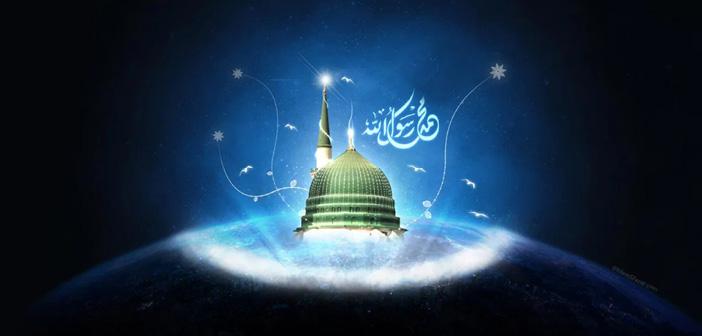What are the islamic bathroom manners? What are the islamic etiquettes?
A Muslim is born clean, lives clean and dies clean.
Man comes into this world clean, both physically and spiritually. A newborn is immediately washed and wrapped in a bundle the moment he is born. Babies are so pure and innocent that everyone naturally feels like smelling and kissing them. Until they can bathe on their own, babies and children are washed by their parents. As they grow older, they begin to take care of the task by themselves. And when there comes a day when they die like every human being, they are again thoroughly washed and wrapped in a shroud by their loved ones, just like the bundle they had once been wrapped in at the time of their birth. And with compassion, they are laid to rest in earth, like the arms of their mother.
What should be paid attention when cleaning the body in the bathroom?
One must bathe or take a shower at least once a week (and even more if need be).
One must do so indoors, in a place where nobody can see.
In public baths or Turkish baths which are open to public use, one must cover certain parts of their body and not expose them to others.
For males, the limits of the body that must be covered before others is the area from the bellybutton to the just underneath the kneecaps, while for females, it is the area from the breasts to just underneath the kneecaps.
One must not look at the covered parts of other people’s body in baths open to public use.
One must enter the bathroom by saying the statement of ‘audhu basmalah’ and the above-mentioned supplication said while entering the toilet and then proceed to enter with the left foot.
Before entering the bathroom, one should say supplications along the lines of, ‘O Lord! Purify my soul from the dirt of sins and immorality, just as you cleanse my body from the dirt.’
Harun Rashid, a Muslim caliph famous for his sense of justice, one day accidentally poured boiling hot water on himself while bathing. He ran out from the Turkish bath in pain. His back was severely burnt. The pain lasted for days. After that day, he gave charity to hundreds of needy persons.
Later on, he would always remind his friends of that painful day and reflect,
“In this life, I cannot even stand hot water that will only purify me of my dirt. What is to become of me in the Hereafter if I end up being sent to Hellfire over the dirt of my sins?”
We must bathe or shower in the most beautiful spiritual feelings and thank our Lord: for He who creates each creation in the manner He pleases, could easily have created each of us as a stray dog that never gets to bathe itself!
While bathing or taking a shower, we must not sing or even speak unless we have to.
We must cover the parts of our body that need to be covered to the best of ability, for this is a practice of the Blessed Prophet -upon him blessings and peace-.
We should perform major ablution (ghusl) with each shower, even this is not obligatory. That way, we will also gain spiritual rewards for performing an act of worship.
For a thorough cleaning, we should use a soap and washcloth.
We should always begin washing our body from top to bottom; for instance, begin from the head and shoulders and then move down, always giving priority to the right limbs before the left ones (such as ear, shoulder, arm, foot etc.).
We leave the bathroom with our right foot and say the above-mentioned prayer said when leaving the toilet.
We must not leave behind any dirt or rubbish and ventilate the bathroom while we are leaving.
We then leave the bathroom in gratitude to Allah, glory unto Him, for giving us the blessing of cleanliness.
Physical and spiritual purity are two parts of a whole.
Allah, glory unto Him, has prescribed to be in a state of minor (wudu) and major ablution (ghusl) before reading the Qur’an and offering ritual prayer. As a matter of fact, these forms of purification have the aim of purifying our hearts from the dirt of sin and evil. There was a sign at the entrance of a Turkish bath in old Istanbul that read:
If you are a man of bad habits and a rotten character
Do not expect the hamam to cleanse you!
If you want a true purification, clean your heart first and then your body…
Muslims have an astonishing sense of manners and hygiene!
With a sensitive sense of manners and hygiene, Muslims have, throughout history, earned the praises and admiration of even non-Muslims. One of them was Dr. A. Brayer who, after travelling many Ottoman towns, confesses:
“Ottoman Muslims never neglect bathing and cleaning themselves. Even when they are ill and out of energy, they do so with the help of their servants, children or wives. When they die, their corpses are not placed in the coffin and given a ritual prayer before they are washed according to the rites of Islam. Yet, Europeans generally lose their sense of hygiene once they grow old and frail. And when they die and are to be placed in coffins, they are wrapped in the worst shroud they can find in the house. Even the thought of giving the corpse a quick scrub down never crossed anyone’s mind.”
Solomon Schweigger, a Protestant priest, also cannot help but praise Muslims:
“They cover themselves even when bathing. What manners! It seems that in spite of our dislike for them, we must learn some manners from these people!”
Source; Islamic Etiquette, Faruk KANGER – Lokman HELVACI, Erkam Publications
Good Manners Towards Allah Almighty
Good Manners Towards Our Prophet




